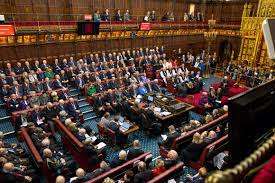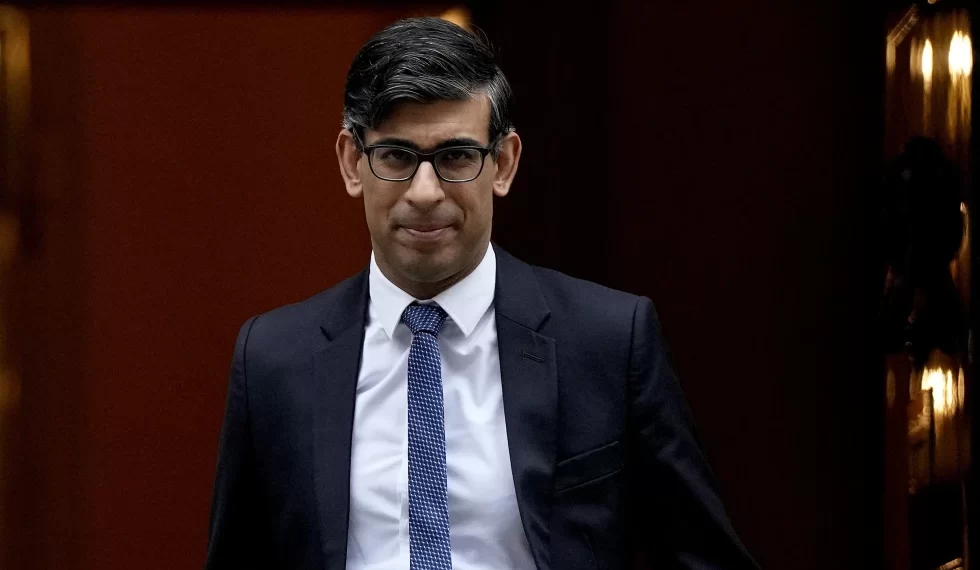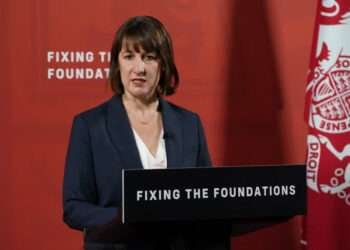The recent proposal by the British government to relocate some asylum-seekers to Rwanda has been strongly criticized by a parliamentary rights watchdog on Monday, February 12, 2024.
According to the watchdog, this plan is deemed “fundamentally incompatible” with the United Kingdom’s human rights obligations.
The controversial bill, currently under debate in the House of Lords, is being examined by the unelected upper chamber in response to a previous ruling by the U.K. Supreme Court, which declared the Rwanda relocation plan illegal.
The court’s decision in November emphasized that Rwanda is not a safe country for migrants.
Dubbed the Safety of Rwanda Bill, this legislation asserts Rwanda’s safety, imposes stricter barriers for migrants contesting deportation, and grants the British government authority to disregard injunctions from the European Court of Human Rights aimed at preventing removals.
According to a report from Parliament’s Joint Committee on Human Rights, which comprises members from both government and opposition parties, the bill has been criticized for explicitly paving the way for the U.K. to potentially violate international law.
The committee stated that the bill enables British officials to engage in actions inconsistent with human rights standards.
Joanna Cherry, a lawmaker from the Scottish National Party and the committee’s Chair expressed concern that the bill poses a significant risk to the U.K.’s reputation as a supporter of human rights.
She emphasized that the proposed legislation seeks to eliminate crucial safeguards against persecution and human rights abuses, including the fundamental right to access a court.
Cherry asserted that the bill inherently harbors hostility toward human rights, and she believes that no amendments can salvage its problematic aspects.
However, the Home Office defended the Rwanda plan, describing it as a “bold and innovative” solution to a “major global challenge.”
It said, “Rwanda is clearly a safe country that cares deeply about supporting refugees… It hosts more than 135,000 asylum seekers and stands ready to relocate people and help them rebuild their lives.”
Policy Aims To Toughen Deportation Procedures
According to the policy, asylum-seekers arriving in the U.K. via small boats across the English Channel would undergo claims processing in Rwanda and remain there permanently. This initiative plays a crucial role in Prime Minister Rishi Sunak’s commitment to “stop the boats” that bring unauthorized migrants to the U.K.
Sunak contends that deporting unauthorized asylum-seekers will discourage individuals from undertaking perilous journeys and disrupt the operational model of human-smuggling networks.
Critics from human rights groups tagged the plan as both inhumane and impractical, and as of now, no individuals have been relocated to Rwanda under this policy.
Following the Supreme Court’s decision, Britain and Rwanda entered into a treaty aimed at enhancing protections for migrants.
Prime Minister Rishi Sunak’s Conservative government asserts that this treaty provides the legal basis for passing legislation designating Rwanda as a safe destination.
While the bill secured approval from the House of Commons last month, it faced resistance from 60 members of Sunak’s Conservative party who sought to make the legislation more stringent.

Currently under examination in the House of Lords, several members aim to either defeat or weaken the bill. Notably, the governing Conservatives lack a majority in the Lords, unlike in the Commons.
Although the upper house possesses the authority to delay and modify legislation, it lacks the power to overrule the decisions of the elected Commons.
Moreover, the financial implications of the deal have been a point of contention.
The UK government has already spent at least £140 million on the policy, and the recent additional payment of £100 million brings the total to £240 million.
Furthermore, another £50 million is expected to be allocated in the 2024-25 financial year.
While the Labour Party estimates that the overall cost to Rwanda could reach approximately £400 million, the government has not officially confirmed this figure
READ ALSO: Labour Faces Criticism Backing Azhar Ali Over Controversial Israel Statement





















